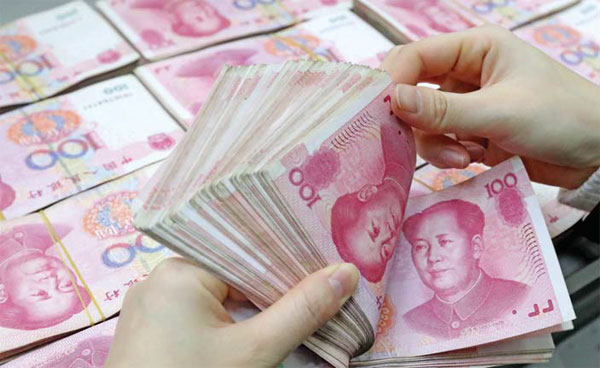Green bond drives yuan to go global
China's green bond is becoming a big driver for future renminbi internationalization, effectively linking Western investors' strong appetite for investment with green credentials with China's need to channel funds to clean up its environment.
As of September, China issued $17.4 billion (16.2 billion euros; 13.8 million) of green bonds, making it the biggest global source of the securities. Green bonds in China have gone from nothing two years ago to accounting for 41 percent of the global market.
An example of high profile issue is the New Development Bank's issue of 3 billion yuan ($448.37 million) of yuan-denominated, green bonds in China's interbank market in July.
The NDB was established by the BRICS group of emerging nations.
|
As of September, China issued $17.4 billion of green bonds, making it the biggest global source of the securities. Provided to China Daily |
For the first time this year, green finance also gained a significant place on the agenda of G20 Global Leaders Summit through China's leadership, giving political support for the growth of this market.
"Renminbi green bonds can be attractive to overseas institutional investors because of the extra transparency in the use of proceeds," says Sean Kidney, CEO of the non-profit organization Climate Bonds Initiative.
Green bonds have more transparency because the money raised needs to be spent on energy and sustainability projects, which is often monitored and certified by third parties. For this reason, European institutional investors looking for long term return, such as pension funds, find green bonds desirable for the safe long term return they generate.
"There is clearly a big demand from European investors for green bonds, supported by political and regulatory push. As things move forward, having green renminbi bonds and therefore a more diversified portfolio will be an attractive opportunity for European investors," says Andrew Carmichael, a partner at the law firm Linklaters.
Green bonds are not only effective in financing China's domestic sustainable projects, but can also finance infrastructure projects along the Belt and Road initiative.
"Currently there is a huge amount of capital looking for yields, and projects along the Belt and Road strategy are very attractive in providing these desirable yields. "
Kidney adds that the fact that the China-backed Asian Infrastructure Investment Bank has positioned itself as a green bank and said it will prioritize green investments means many of the projects along the Belt and Road will have a green and sustainable focus, and the fact they are likely to be financed in renminbi means investment into those projects by global investors is helpful for the renminbi internationalization process.
Despite huge potential, the growth of renminbi green bonds still faces two issues, says Carmichael.
"The first is the depreciation of the renminbi over the past year, creating some reluctance in the market to do renminbi deals, but this should be short-lived. The second issue, which relates to the fact China's own green bond standards are different from Western standards, may take some effort and education to solve," he says.
Currently Chinese green bonds follow standards set by the Chinese central bank, which are different from global green bond standards in minor ways. For example, funding of clean coal through green bonds in China is allowed, but not internationally.
Luckily, harmonization of standards is already happening as an increasing number of bonds issued by Chinese entities fit both the Chinese and international standards.
One key example is a $500 million Bank of China bond listed on London Stock Exchange in November. Significantly, this bond is a covered bond, giving investors dual recourse: allowing claims over a dedicated "cover pool" of assets, and the usual claim against Bank of China.
Carmichael says covered renminbi bonds should be a great opportunity for future renminbi internationalization.
"There is already a big appetite for covered bonds in Europe, so if there is an increase in issuance of renminbi green covered bonds, that will really help renminbi internationalization."
cecily.liu@mail.chinadailyuk.com



















